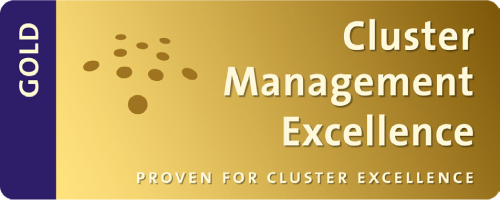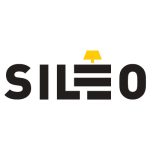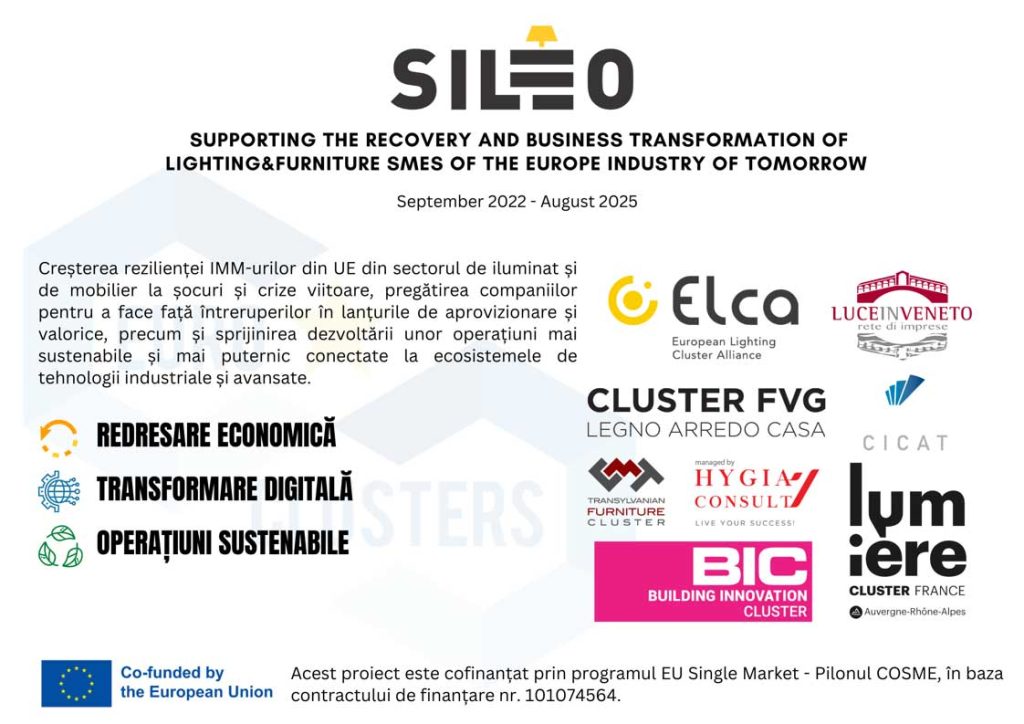COVID-19 highlighted the “resilience gap” between small and large companies. It is widely accepted that the pandemic is truly global, but responses to such a large-scale event vary. SMEs are less resilient to shocks, as they often lack the necessary resources and are dependent on supply chains. Despite this, SMEs are key change agents for a digital and green growth.
There is a real concern among SMEs that ignoring new technologies will expose them to the risk of falling behind, along with an increasing openness to embracing “building better” through digital means.
The SILEO project brings together 7 key groups from Austria, France, Italy, Romania, and Spain, collectively representing over 3,000 SMEs in the furniture and lighting industries. The project aims to accelerate and support SMEs in their process of adopting advanced technologies and circular business models.
SILEO will implement a set of direct financial and non-financial actions, carefully designed to prepare clusters to adequately respond to the companies’ needs for digital and circular transition.
Project partners: Transylvanian Furniture Cluster (Cluster Mobilier Transilvan) – Romania, EUROPEAN LIGHTING CLUSTER ALLIANCE-ELCA-Italy, CLUSTER LUMIERE ASSOCIATION-France, CLUSTER D’IL·LUMINACIO DE CATALUNYA-CICAT-Spain, RETE DI IMPRESE LUCE IN VENETO-Italy, BUSINESS UPPER AUSTRIA-OO WIRTSCHAFTSAGENTUR GMBH-Austria, CLUSTER LEGNO, ARREDO E SISTEMA CASA FVG SRL CONSORTILE-Italy.
Project co-financed by the European Union through the SINGLE MARKET PROGRAMME, under the SMP-COSME-2021-CLUSTER call.



